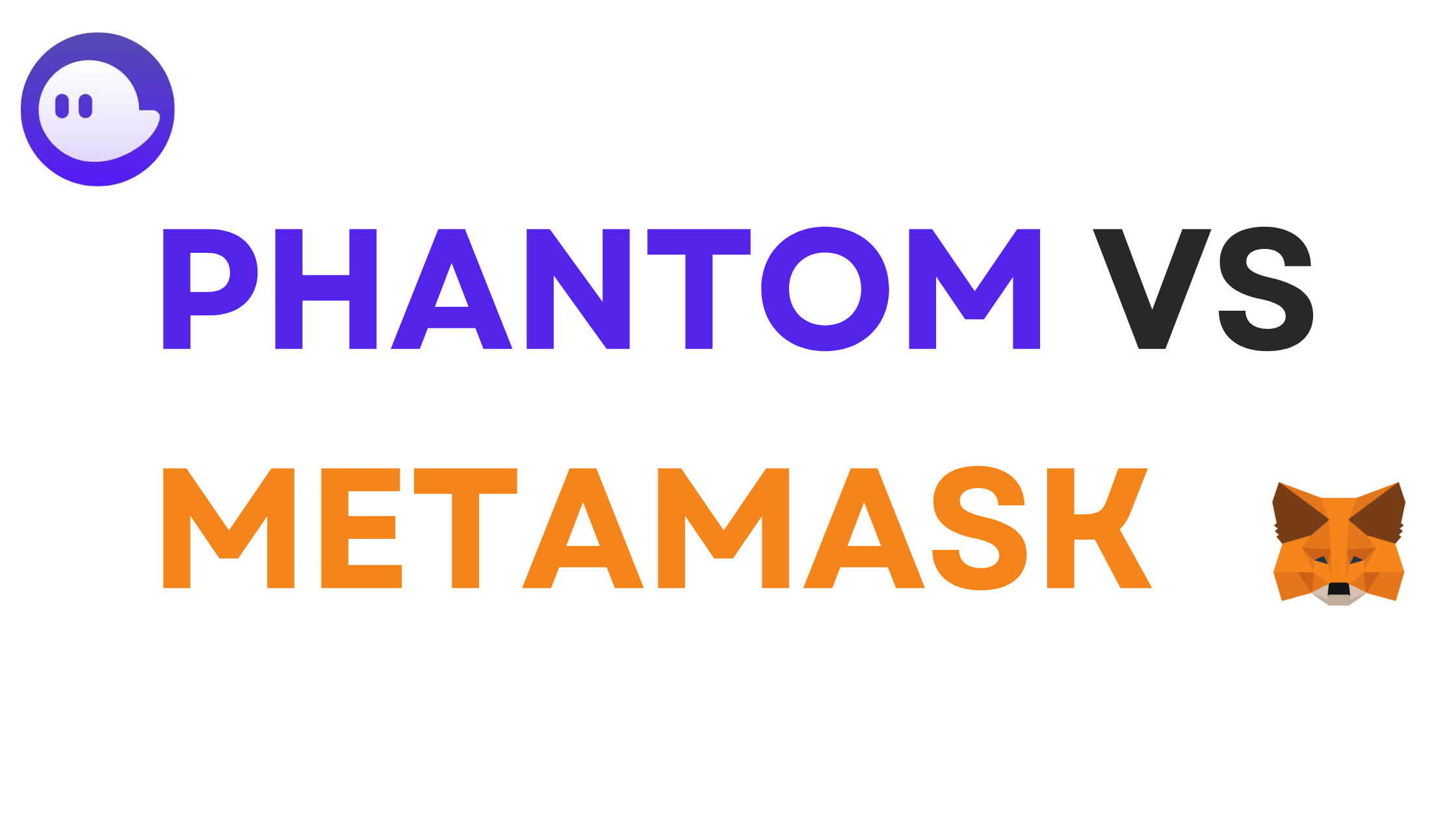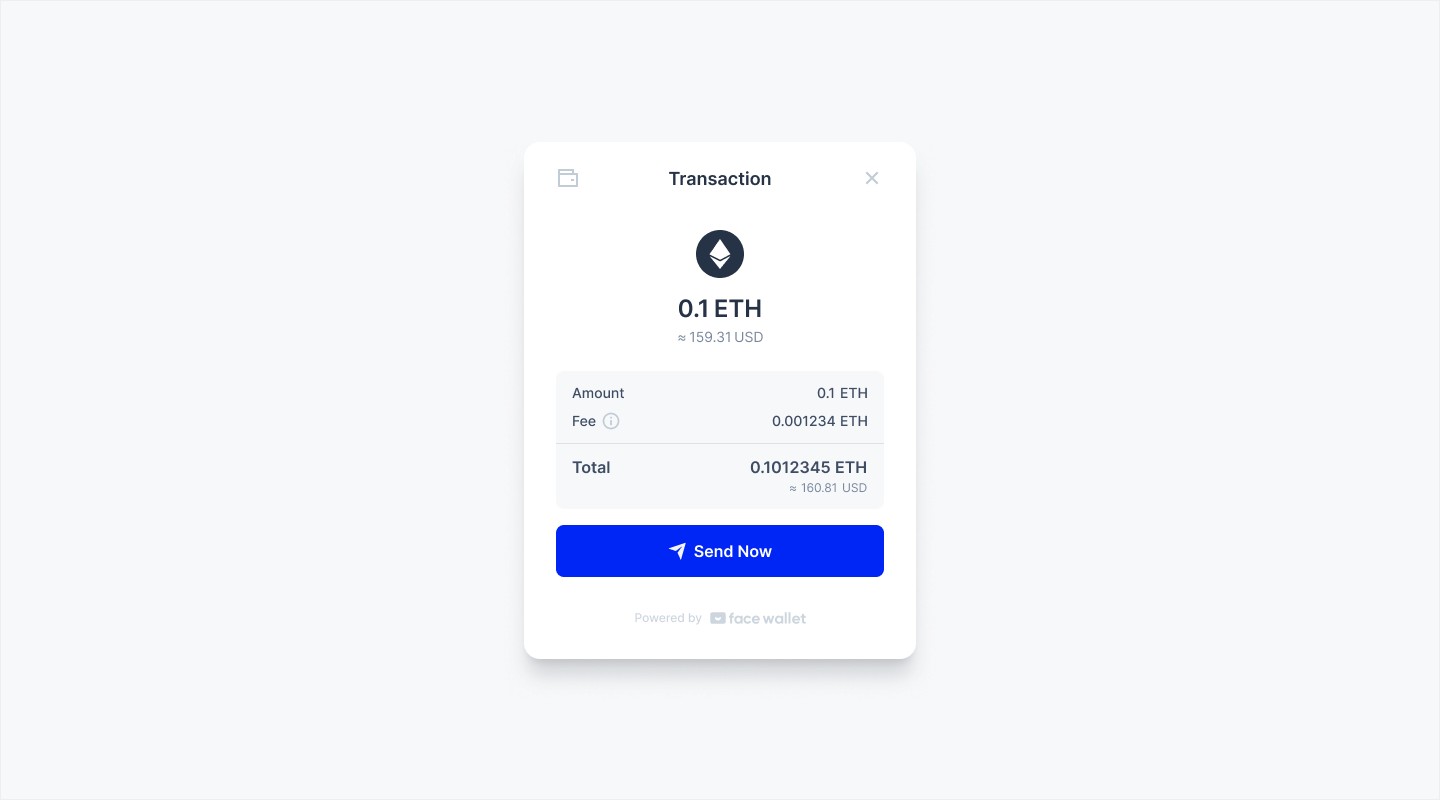Phantom vs MetaMask: Comparison of Leading Crypto Wallets
Explore the detailed comparison of Phantom and MetaMask, two of the most popular cryptocurrency wallets. Understand their features, security, user experience, and more
Confused while deciding between Phantom Wallet and MetaMask for your cryptocurrency storage? Fear not! We've prepared a comprehensive comparison to aid your decision-making. From assessing user experience, and supported platforms, to the variety of cryptocurrencies supported, we've covered it all to help you make an enlightened choice!

Phantom Vs MetaMask: What’s It

For those seeking a dependable cryptocurrency wallet, Phantom and MetaMask both emerge as top-tier options.
Phantom, a recent entry to the market, was established in 2021 in San Francisco and operates with a team of 60. Despite its recent inception, it has rapidly acquired a user base of over 2 million and garnered 500,000 downloads on Android, backed by a respectable 3.7-star rating and over 2,000 reviews. Furthermore, its browser extension boasts over 2 million downloads and a commendable 4.2-star rating, as reflected in its 500-plus reviews.
Conversely, MetaMask, a well-established player in the field since 2016, also operates with a 60-strong team. It stands tall with a staggering user base of 30 million and 10 million Android downloads, substantiated by a 4.4-star rating and over 200,000 reviews. Its browser extension has exceeded 10 million downloads, but holds a slightly subdued rating of 3.2 stars, based on 3,000 reviews.
Phantom Vs MetaMask: User Interface And Experience
The simplicity of a wallet is very important, especially as many newcomers are joining the world of cryptocurrencies. Phantom, which supports only one blockchain, is simpler to use than Metamask, which requires switching between different blockchains.
In contrast, MetaMask employs a straightforward, consistent interface for EVM-based blockchains, compatible with a range of browsers including Chrome, Firefox, Brave, Edge, and Opera. MetaMask, another non-custodial wallet, has an impressive user count of over 30 million and 10 million Android downloads, boasting a 4.4-star rating and over 200,000 reviews. Like Phantom Wallet, it doesn't offer a desktop variant.
My personal experience using Phantom Wallet and MetaMask suggests that Phantom delivers a quicker and more instinctive user experience. It's evident from the moment you launch the wallet that its design and interface prioritize simplicity and user-friendliness. Now that Phantom Wallet has extended its reach to Ethereum and Polygon, it remains to be seen how many MetaMask users will make the switch.
Furthermore, Phantom has a clean and straightforward user interface (UI) with all the options available on a single page. These options include the wallet balance, collectibles, the option to swap currencies, recent activities, and settings.
For Metamask, after selecting your preferred blockchain, you need to navigate a dropdown menu to access other available options. This can be a bit tricky, particularly for those who are not tech-savvy or are using the wallet for the first time. So, when it comes to simplicity of use, Phantom has the upper hand over Metamask.
Phantom Vs MetaMask: Key Functionalities
A standout feature of both wallets is their swap functionality. They enable users to switch between different cryptocurrencies through well-known DeFi exchanges – Uniswap and Sushiswap on MetaMask and Jupiter on Phantom.
Recently, MetaMask has also incorporated staking support through Lido Finance and Rocket Pool. This development empowers users to garner staking rewards by depositing ETH in their MetaMask wallet.

Phantom Vs MetaMask: Supported Cryptocurrencies
Phantom Wallet serves as an ideal choice for those seeking an easy-to-use, secure platform for storing SPL tokens on the Solana Blockchain. It effortlessly handles SPL tokens such as SOL, RAY, and MNGO, along with renowned stablecoins like USDT, USDC, and USDH.
Conversely, MetaMask targets EVM-based ecosystems, extending support to several platforms like Ethereum, Avalanche, Polygon, and Fantom. This enables users to effectively manage a broad spectrum of tokens linked with these ecosystems, including ETH, AVAX, FTM, and MATIC.
Phantom Vs MetaMask: Safety Measures
Phantom, despite not being open source, has undergone audits by Kudelski Security and offers bug bounties of up to $50,000. The Phantom team is continuously working on advanced solutions to thwart phishing sites and boost overall security. Additionally, Phantom integrates with hardware wallets like Trezor and Ledger, providing an added level of asset protection for its users.
On the other hand, MetaMask, fully open source, has been audited by Least Authority. It also maintains a bug bounty initiative through HackerOne and provides reinforced safeguards against scams. A distinguishing feature of MetaMask is its extensive compatibility with hardware wallets. Known for one of the best integrations with hardware wallets, it supports Ledger, Trezor, Airgap, Keystone, and Lattice, making it an attractive choice for users who prioritize security and desire a variety of hardware options.
MetaMask Vs Phantom: Compatibility With Hardware Wallets
In simpler terms, a key feature of a hot wallet, which is an online cryptocurrency wallet, is the ability to connect to hardware wallets. These hardware wallets are like secure digital vaults that store your cryptocurrency offline, which makes them safer. More and more people who use cryptocurrency are realizing how important these hardware wallets are.
When we compare Metamask and Phantom in this regard, Metamask provides more choices.
Metamask works with different types of hardware wallets including Trezor, Ledger, Lattice, Keystone, and AirGap Vault. This gives users a wide variety of safe options to choose from.
Phantom, however, only works with Ledger, which is a very good and well-known hardware wallet, but it's the only one it supports.
So, if we look at the support for hardware wallets, Metamask is the clear winner because it supports five different wallets, while Phantom only supports one.
Checkout for arcana.network for best web3 authentication tool
MetaMask vs. Phantom: Comparing Wallet Fees
When choosing between MetaMask and Phantom wallets, understanding transaction fees is crucial. These fees depend on the blockchain network they operate on, affecting the overall cost of using these wallets. Let’s break it down in simple terms.
MetaMask Fees
MetaMask primarily supports Ethereum and other EVM-compatible chains like Binance Smart Chain (BSC) and Polygon. The transaction fees vary based on the blockchain:
- Ethereum Network (ETH): Ethereum is notorious for high gas fees. These fees can fluctuate between $5 to $50 per transaction, sometimes even higher during network congestion.
- Binance Smart Chain (BSC): Unlike Ethereum, BSC offers much lower fees, ranging from $0.10 to $0.50 per transaction.
- Polygon Network: Fees on Polygon are significantly lower, often costing less than $0.01 per transaction.
Phantom Fees
Phantom is a Solana-based wallet, meaning it only supports Solana transactions. Solana’s network is known for being fast and cheap:
- Solana (SOL) Network: Transaction fees are incredibly low, usually around $0.00025 per transaction (less than a cent).
Which Wallet is Cheaper?
- If you're using Ethereum, MetaMask will be expensive due to high gas fees.
- If you're using BSC, MetaMask is still more expensive than Phantom but cheaper than Ethereum.
- If you're using Solana, Phantom is the most cost-effective option, with fees close to zero.
For low-cost transactions, Phantom wins because Solana's fees are negligible. If you need to use Ethereum or BSC, MetaMask is the better choice, but expect higher fees.
Take Control of Your Digital Assets! 🔥
Arcana Wallet offers a secure and private way to manage your Web3 world. Sign Up Today

